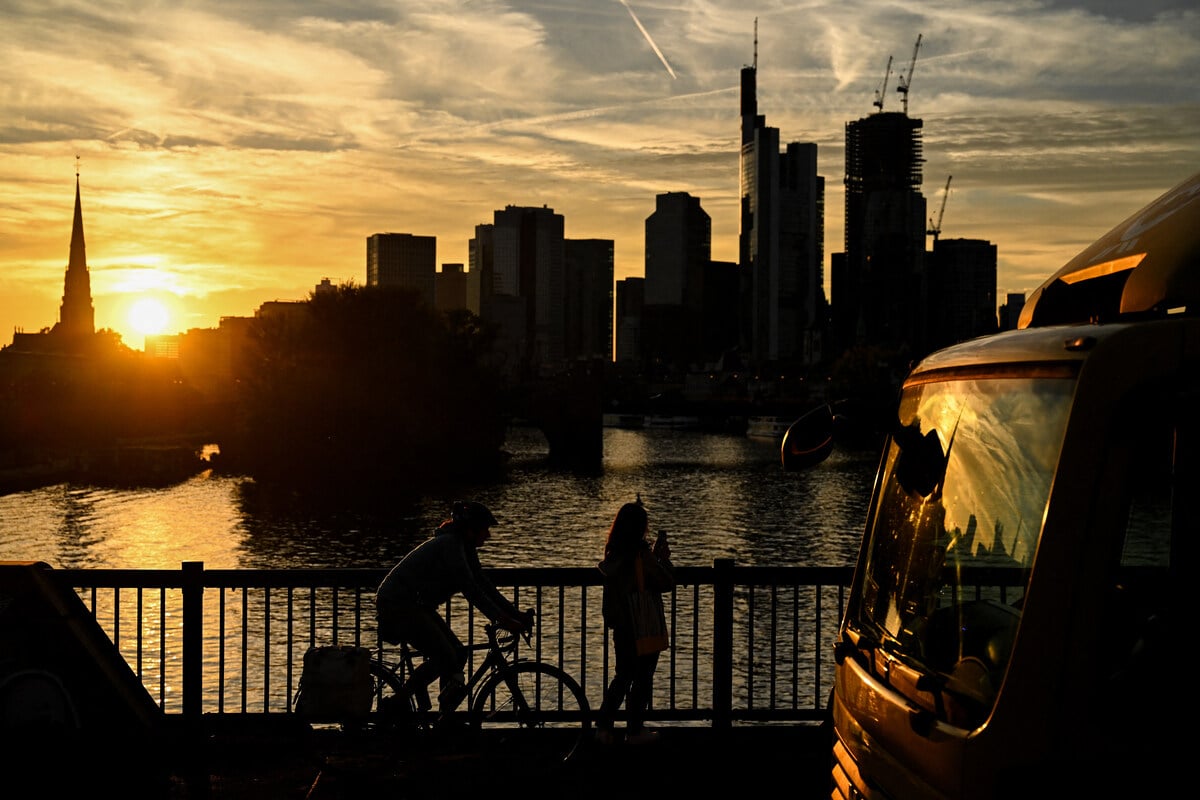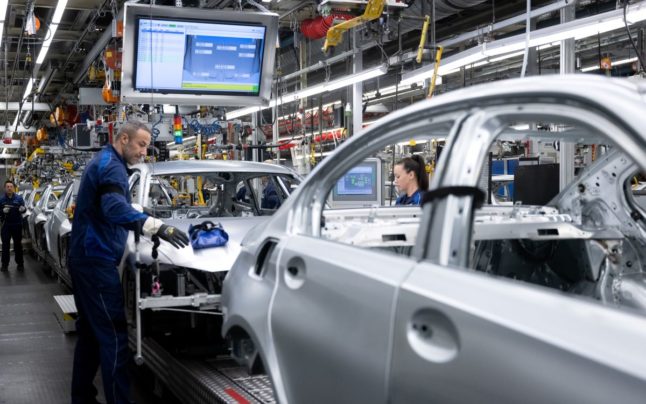Output contracted by 0.3 percent year-on-year, federal statistics agency Destatis said in preliminary figures.
“Overall economic development faltered in Germany in 2023 in an environment that continues to be marked by multiple crises,” the agency’s Ruth Brand told a Berlin press conference.
Europe’s largest economy likely saw a 0.3-percent drop in gross domestic output in the final quarter of the year, the agency calculated, again in preliminary figures. It also revised the data for the third quarter from a 0.1-percent contraction to a stagnation, meaning Germany avoided a year-end technical recession of two successive quarters of negative growth.
Just one year earlier, there had been 1.9 percent growth – considered weak at the time.

The German economy has faced severe headwinds since Russia’s war in Ukraine sent inflation, particularly the cost of energy, soaring. The price spikes contributed to a steep downturn in Germany’s energy-hungry manufacturing sector, while the construction sector also took a hit. Increasing competition from China, once a reliable destination for “made in Germany” goods, as well as aggressive eurozone rate hikes to tame inflation further added to Germany’s woes.
The limp economic performance was widely expected, with the International Monetary Fund predicting that Germany would be the only major advanced economy not to grow in 2023. If confirmed in the final figures, the 2023 contraction makes it Germany’s weakest year since the coronavirus pandemic battered the economy in 2020.
“Despite recent price declines, prices remained high at all stages in the economic process and put a damper on economic growth” in 2023, said Brand. “Unfavourable financing conditions due to rising interest rates and weaker domestic and foreign demand also took their toll.”
The weak economic performance continues a persistent trend in Germany.
“The German economy has been in almost constant crisis mode for almost four years,” said the Hamburg World Economic Institute, adding that the Middle East conflict and Germany’s current budget woes were also adding uncertainty on top of Russia’s war against Ukraine – affecting economic predictions.
READ ALSO: What’s the outlook for the German job market in 2024?
Uncertain outlook
A modest recovery is expected to get under way in 2024, with Germany’s Bundesbank central bank recently forecasting growth of 0.4 percent.
“We see a silver lining for the economy in 2024,” said KfW chief economist Fritzi Koehler-Geib. “Thanks to strong real wage growth, private consumption in particular is likely to pick up again. Together with an expected recovery in export demand, gross domestic product is likely to grow,” she added.
But ING bank economist Carsten Brzeski was less optimistic, pointing to fresh uncertainty stemming from the German government’s recent budget upset and shipping delays in the Suez Canal as a result of conflict in the Middle
East.
‘Complete clusterf*ck’: your predictions for life in Germany in 2024
“Looking ahead, at least in the first months of 2024, many of the recent drags on growth will still be around and will, in some cases, have an even stronger impact than in 2023,” Brzeski said. He predicted that gross domestic product would shrink again this year, in what would “be the first time since the early 2000s that Germany has gone through a two-year recession, even though it could prove to be a shallow one”.
Concerns about slowing exports and the slump in the crucial manufacturing sector, coupled with a chronic shortage of skilled labourers, have begun to raise fears of a “deindustrialisation” in Germany.
Chancellor Olaf Scholz’s government, whose popularity has been sliding in the polls, has sought to counter those concerns with pledges to invest heavily in the transition to green energy and in modernising infrastructure. But a shock court ruling at the end of last year blew a multi-billion-euro hole in the government’s budget, upending its spending plans and leaving Scholz and his coalition partners scrambling to find savings.
Anger over Berlin’s proposal to cut some subsidies for agriculture prompted farmers to stage tractor blockades across the country last week, culminating in a major demonstration in Berlin on Monday.
5,000 tractors: German farmers round off week of angry protests in Berlin



 Please whitelist us to continue reading.
Please whitelist us to continue reading.
Member comments